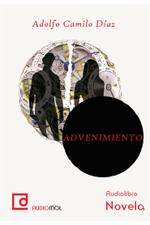Blog del Instituto Cervantes de Dublín
Torre Martello
Audiolibro de la semana / Audiobook of the week: El padre de Blancanieves
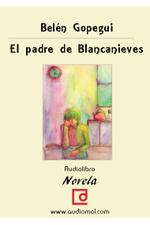 El audiolibro de la semana nos llega de la mano de Belén Gopegui con el enigmático título de El padre de Blancanieves. Para descargártelo, solo tienes que pulsar aquí con tu nombre de usuario y contraseña.
El audiolibro de la semana nos llega de la mano de Belén Gopegui con el enigmático título de El padre de Blancanieves. Para descargártelo, solo tienes que pulsar aquí con tu nombre de usuario y contraseña.
En El padre de Blancanieves, una profesora de instituto espera en su casa a que el repartidor del supermercado le traiga la compra. El repartidor se retrasa y ella se marcha. Horas después encuentra que le han dejado la compra a unos vecinos y se han estropeado los productos congelados.
La profesora llama al supermercado para quejarse. Al día siguiente, aún no se ha quitado el pijama cuando llaman al timbre; es el repartidor del supermercado, un hombre de Ecuador. El hombre le dice que por causa de su llamada telefónica le han despedido.
La profesora lamenta el incidente, pero el hombre insiste: ella es responsable de su despido, debe encontrarle otro empleo. A partir de ese momento, la vida de la profesora se ve afectada, y con ella, la vida de su familia.
Our audiobook of the week comes from the hand of Belén Gopegui with the enigmatic title of El padre de Blancanieves. To download it, just click here with your user name and password.
In El padre de Blancanieves, a school teacher is at home waiting for the delivery man that will bring her grocery shopping. He is late and she goes to work. When she returns, she realize that the delivery man left her products with her neighbors, and the frozen products are spoiled.
She calls the store to complain. The next day, she still has not taken off his piyama when the doorbell rings. It is the delivery man from the supermarket, a man from Ecuador. The man says that because of his phone call, he has been fired.
The teacher regrets the incident but the man insists, she is responsible for his firing. From that moment, the teacher’s life is affected, and with it, the life of her family.
Novedades en la biblioteca: octubre 2012 / New to the library: October 2012
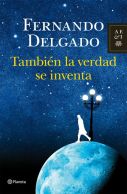 Las novedades de la biblioteca pueden ser consultadas en nuestro catálogo en línea, como es habitual.
Las novedades de la biblioteca pueden ser consultadas en nuestro catálogo en línea, como es habitual.
Para ello, seleccione ÚLTIMAS ADQUISICIONES y elija el período de tiempo que le interesa: ”el último mes” o “los últimos tres meses”.
Ésta es nuestra selección para los meses de octubre de 2012.
The lastest additions to the library catalogue can be consulted on line as usual.
Click ÚLTIMAS ADQUISICIONES and choose the time period: “el último mes” or “los tres últimos
meses”.
This is our selection for October 2012.
[Video] Cecilia Gandarias habla sobre la exposición «Geografía Postal»
En la primera mitad del siglo XX, las familias García Lorca y De los Ríos se enviaban postales casi todos los días, creando así una amplísima colección que ahora se expone en el Instituto Cervantes. Cecilia Gandarias, comisaria de la exposición, nos habla de cómo surgió la idea para esta exposición y de como se realizó la selección de las postales.
La exposición estará abierta del 20/09/2012 al 17/11/2012.
El horario de visita es: Lun.- jue.: 14-19 h. Sáb: 10-14 h. Cerrado vie., dom. y festivos
In the first half of the 20th Century two families, García Lorca and De los Ríos, sent each other postcards almost daily. A selection of this huge collection of postcards is now on display at the Instituto Cervantes in Dublin. Cecilia Gandarias, exhibition curator, explains us in this video how they came to the idea of organizing this exhibition and how Martin Parr, photographer and specialist in postcards, made the selection.
This display will bring us closer to the most intimate side of the poet´s life.
The exhibition is open fro the 20/09/2012 to 17/11/2012.
Opening hours: Mon-Thur: 2-7pm. Sat: 10am-2pm. Closed on Fridays, Saturdays and Bank Holidays.
[Video] Ignacio Martínez de Pisón en la biblioteca del Instituto Cervantes de Dublín
El pasado mes de mayo, Ignacio Martínez de Pisón nos visitó para participar en el homenaje a Félix Romeo que tuvo lugar en nuestro centro. Ese mismo día fue entrevistado por nuestra compañera Carmen Sanjulián en nuestra biblioteca.
Ignacio Martínez de Pisón (Zaragoza, 1960), es escritor y guionista. Sus novelas y relatos han sido galardonadas con los premios Rodolfo Walsh y Dulce Chacón. Elogiado por la crítica de varios paises europeos, su obra ha sido traducida a varios idiomas.
29th of May, Ignacio Martínez de Pisón was interview by one of our teachers, Carmen Sanjulián, on the occasion of his visit to the Instituto Cervantes in Dublin to participate in the tribute to Félix Romeo that took place in our Café Literario.
Ignacio Martínez de Pisón was born in Zaragoza (1960). His work as a writer has achieved recognition with the awards Rodolfo Walsh and Dulce Chacón and received outstanding critic’s reviews from various European countries. His novels have been translated into several languages.
Federico García Lorca: nuestro autor del mes de septiembre
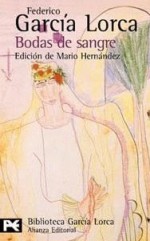 Desde el día 20 de este mes y hasta el 17 de noviembre contaremos en el Instituto con la exposición “Geografía postal. Las postales de las familias García Lorca y De los Ríos”.
Desde el día 20 de este mes y hasta el 17 de noviembre contaremos en el Instituto con la exposición “Geografía postal. Las postales de las familias García Lorca y De los Ríos”.
En la biblioteca, aprovechamos esta ocasión para recordar al que en la actualidad es el poeta español más leído de todos los tiempos. Fundamental es también su figura en el teatro español contemporáneo. En 1915 comienza a estudiar Filosofía y Letras y Derecho en la Universidad de Granada. Formó parte de El Rinconcillo, centro de reunión de los artistas granadinos donde conoce a Manuel de Falla quien ejerció una gran influencia en él, transmitiéndole su amor por el folclore y lo popular.
A partir de 1919, se instaló en Madrid, en la Residencia de Estudiantes, donde conoció a Juan Ramón Jiménez y a Machado, y trabó amistad con poetas de su generación y artistas como Buñuel o Dalí. En este ambiente, Lorca se dedicó con pasión no sólo a la poesía, sino también a la música y el dibujo, y empezó a interesarse por el teatro.
From the 20th of this month until the 17th of November, you can enjoy at the Institute the exhibition “Postal Geography. García Lorca and De los Ríos Families´s Postcards”.
At the library, we take the chance to remember the most read Spanish poet of all times. He is also an essential part of contemporary Spanish theatre. He started to study Philosophy and Literature and also took Law studies at the University of Granada. He was part of El Rinconcillo, a meeting point for the artists of Granada where he met Manuel de Falla who was a big influence, learning from him about folk and tradition .
In 1919 he moved to Madrid and lived in the Residence for Students, where he met Juan Ramón Jiménez and Machado and he became good friend of poets and artists of his generation such as Buñuel or Dalí. Lorca worked with passion in that environment in poems and also in music, drawing and he started to be interested in theatre.
Novedades en la biblioteca / New to the @ICDublin Library
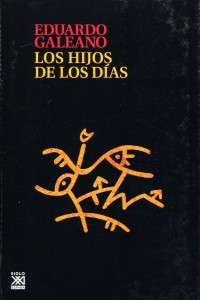 Las novedades de la biblioteca pueden ser consultadas en nuestro catálogo en línea, como es habitual.
Las novedades de la biblioteca pueden ser consultadas en nuestro catálogo en línea, como es habitual.
Para ello, seleccione ÚLTIMAS ADQUISICIONES y elija el período de tiempo que le interesa: ”el último mes” o “los últimos tres meses”.
Ésta es nuestra selección para los meses de septiembre de 2012.
The lastest additions to the library catalogue can be consulted on line as usual.
Click ÚLTIMAS ADQUISICIONES , then select “Dublin”, and choose the time period: “el último mes” or “los tres últimos
meses”.
This is our selection for September 2012.
Horario de verano en el Instituto Cervantes de Dublín / Summer opening hours at #ICervantes #Dublin
 Hoy decimos adiós al invierno también con nuestros horarios. El horario de verano comienza y con él también los nuevos cursos en el Instituto Cervantes.
Hoy decimos adiós al invierno también con nuestros horarios. El horario de verano comienza y con él también los nuevos cursos en el Instituto Cervantes.
Desde el 2 de julio hasta el 31 de agosto, tanto la recepción y administración como la biblioteca del centro abrirán con los siguientes horarios:
Lunes a jueves: 11h a 6.30h
Viernes : 9.30h a 14h
Recordad que los sábados el centro permanecerá cerrado desde el 30 de junio al 1 de septiembre (ambos inclusive). Mañana, por lo tanto, no abrimos. El primer sábado de apertura será el próximo 8 de septiembre.
Summer opening hours are starting today and at the same time, we are starting our new Summer courses. Now you have your last chance to enrol with us!
Please notice that the opening hours in the administration and in the library from 1st July to 31st August will be as follows:
Monday to Thursday: 11am-6.30pm
Friday: 9.30am-2pm
The Institute will remain closed on Saturdays from 30th June to 1st September (both inclusive). So tomorrow we are closes. We re-open on Saturdays next 8th September.
Enjoy your summer!
Comienzan los cursos de verano / Summer courses starting now. Last chance to enrol!
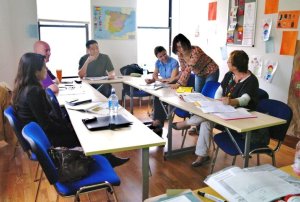 Los nuevos cursos de verano comienzan el lunes. Aún estás a tiempo de inscribirte.
Los nuevos cursos de verano comienzan el lunes. Aún estás a tiempo de inscribirte.
Estudiar español en nuestro Instituto no es sólo aprender el idioma, es también una experiencia para conocer y descubrir las diferentes culturas del mundo hispánico pues nuestros alumnos pueden participar en las actividades culturales que regularmente organiza el Instituto.
Asimismo, los alumnos también tienen acceso a nuestra biblioteca, que ofrece una amplia selección de literatura española y latinoamericana, películas, música, revistas y periódicos del mundo hispanohablante.
Hay cursos para todos los gustos y todos los niveles. Aquí tienes toda la información. ¡Te esperamos!
New Summer courses are starting in July. Now you have your last chance to enrol. Remember we are closed next Saturday.
Studying Spanish in our institute not only means learning the language but enjoying the opportunity of getting to know and discovering the different cultures within the Hispanic world. Each week our students will have the chance to participate in some of our cultural activities.
Students will also have access to our library, which offers a wide selection of Spanish and Latin American literature, as well as movies, music, magazines and newspapers from the Spanish-speaking world.
Advenimiento: Audiolibro de la semana / Audiobook of the week
¿Disfrutasteis del audiolibro de la semana pasada? ¿Os gustan las historias de terror? Pues con ellas seguimos, porque el audiolibro de esta semana también se adentra en el terreno de lo fantástico, el misterio y el horror. Si os da miedo la oscuridad, por favor, no descarguéis este audiolibro.
La historia: Advenimiento es un viaje al infierno… o quizás la salida de él. Adrián Montes es psicoantropólogo. Lo llaman para que se una al equipo que investiga un nuevo advenimiento: la aparición, en una vieja casa, de dos semiesferas ocupadas por un hombre y una mujer ¿Una aparición divina? ¿Una manifestación del maligno… o de algo peor?
Advenimiento es una historia de muerte más allá del amor.
El autor: Adolfo Camilo Díaz López es un escritor, dramaturgo y gestor cultural asturiano. Como escritor, destaca como autor de textos teatrales y de novelas cortas, y ha ganado algunos de los premios más prestigiosos de la literatura asturiana, como el Premio Xosefa de Xovellanos en dos ocasiones y el de novela corta de la Academia de la Lengua Asturiana. Obtuvo la licenciatura en Historia en la Universidad de Oviedo.
¿Did you enjoyed last week audiobook? Do you like scary stories? Good, because this week audiobook also delves into the realm of fantasy, mystery and horror. If you afraid of the dark, please do not download this file.
The story: Advenimiento is a journey to hell. Adrian Montes is psicoantropologist. He is asked to join the team investigating a new mistery: the appearance of two hemispheres occupied by a man and a woman in an old house. A divine apparition? A manifestation of evil … or something worse?
Advenimiento is a story of love beyond death.
The author: Adolfo Camilo Diaz Lopez is a writer, playwright and cultural manager from Asturias, Spain. As a writer, stands out as the author of dramatic texts and short stories, and has won some of the most prestigious awards of Asturian literature. He graduated in History at the University of Oviedo.
El mundo de la traducción / The world of translation
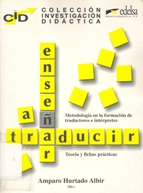 Traducir libros ha sido una labor casi paralela a los inicios de la literatura pero a pesar de eso, hasta hace relativamente poco, no se había creado un registro centralizado de obras traducidas.
Traducir libros ha sido una labor casi paralela a los inicios de la literatura pero a pesar de eso, hasta hace relativamente poco, no se había creado un registro centralizado de obras traducidas.
Con este objetivo, en 1932 se creó el Index Translationum, una iniciativa del Instituto Internacional de Cooperación Intelectual de la Sociedad de Naciones. Cuando comenzó, era tan solo un catálogo trimestral de libros traducidos en una quincena de países. La UNESCO retomó el proyecto tras la Segunda Guerra Mundial en la que es su iniciativa más longeva. Este año la institución celebra su ochenta cumpleaños. Por eso, durante este mes de junio, nuestro tema estrella es la traducción.
Translating books has been almost a parallel activity to writing since the beginning of literature but in spite of it, there was not a centralized register of translated books.
Index Translationum was created in 1932 to solve this matter. It was an initiative of the International Institute of Intellectual Cooperation of the United Nations. When it started, it was only a three-monthly catalogue of the books translated in fifteen countries.
Unesco took over the project after the Second World War, being its oldest initiative. This year the institution celebrates its eighty birthday. Because of that, during June, the library suggests you to take a look at our section about translation and translated books.
Audiolibro de la semana | Audiobook of the week: Bilis negra
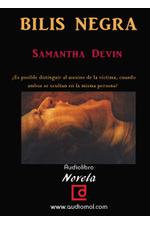 Para esta semana te proponemos una nueva novela en audio, una novela de misterio, perfecta para estos días de lluvia que insisten en acompañarnos. El título es Bilis negra, de la novelista Samantha Devin. Puedes descargarla ahora mismo y escucharla en cualquier reproductor de MP3. La tienes a un solo clic de distancia.
Para esta semana te proponemos una nueva novela en audio, una novela de misterio, perfecta para estos días de lluvia que insisten en acompañarnos. El título es Bilis negra, de la novelista Samantha Devin. Puedes descargarla ahora mismo y escucharla en cualquier reproductor de MP3. La tienes a un solo clic de distancia.
La historia: Simon Bughin sospecha que detrás del inesperado suicidio de su hermana se esconde una secta satánica. Sus investigaciones le llevan a Shimts, un pequeño pueblo del norte de Escocia.
Allí conoce a Max, un joven dibujante de cómics reservado y tímido, que ha llegado hasta ese apartado lugar porque su madre también se acaba de suicidar sin razón aparente. Los dos están alojados en el único hotel del pueblo, un antiguo castillo escocés regentado por una extravagante ninfómana.
Ambos buscan al mismo hombre: un prestigioso psiquiatra, amante de las ciencias ocultas, que parece ser responsable de ambas muertes. Simon y Max descubren que el pueblo y sus habitantes esconden un secreto que compromete su propia visión de la realidad.
The story: Simon Bughin suspects that there is a satanic cult behind her sister´s unexpected suicide. His research takes him to Shimts, a small village in the north of Scotland. There he meets Max, a young and shy cartoonist who has just arrived to that far away place because his mother has just commited suicide as well.
Both are staying at the only hotel in the village, an old Scottish castle run by an odd nymphomaniac. They are both looking for the same man: a prestigious psychiatrist, fan of the occult who seems to be responsible for both deaths. Simon and Mak find out that the village and its inhabitants hide a secret that compromises their own vision of reality.
The author: Samantha Devin is a Spanish writer living in London. She published several short stories in prestigious anthologies before publishing her first novel, Bilis negra (2004). She has cooperated with several media as London Magazine. Devin published her second novel in 2006, Arcadia which is a modern tragedy that confirms her talent as a horror writer.
Audiolibro de la semana / Audiobook of the week: La hora azul
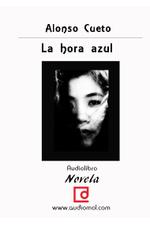 Una nueva novela en audio para un nuevo fin de semana que se presenta un tanto gris. Puedes descargarlo ahora mismo y escucharlo en cualquier reproductor de MP3. Ya sabes, si tu lengua nativa no es el español, esta es una buena forma de practicar y afinar el oído. Esta semana te proponemos la novela de Alonso Cueto titulada La hora azul. La tienes a un solo clic de distancia.
Una nueva novela en audio para un nuevo fin de semana que se presenta un tanto gris. Puedes descargarlo ahora mismo y escucharlo en cualquier reproductor de MP3. Ya sabes, si tu lengua nativa no es el español, esta es una buena forma de practicar y afinar el oído. Esta semana te proponemos la novela de Alonso Cueto titulada La hora azul. La tienes a un solo clic de distancia.
La hora azul cuenta la historia del doctor Adrián Ormache, un abogado próspero que vive en una zona acomodada de Lima. Tiene un buen sueldo, un trabajo estable y una familia encantadora. Al cuidado de su madre, su infancia también ha transcurrido sin problemas. Adrián sólo ha visto esporádicamente a su padre, de cuyas hazañas como oficial de la marina peruana ha oído hablar.
Tras su fallecimiento, Adrián descubre, sin embargo, que su padre estuvo a cargo de un cuartel en la zona de Ayacucho, durante la guerra de Sendero Luminoso. Gracias a ex subordinados suyos, se entera, además, de que ordenaba las sesiones de tortura y mandaba violar y ejecutar a las prisioneras. Pero en una ocasión su padre le perdonó la vida a una de ellas, que luego se escapó del cuartel. Adrián se propone conocerla.
Alonso Cueto Caballero nació el 30 de abril de 1954 en la ciudad de Lima (Perú). Debido al trabajo de su padre, pasó su infancia viviendo en Paris y Washington. A los siete años, volvió a vivir en Lima.
En 1977 se graduó en la facultad de literatura de la Universidad Católica del Perú con una tesis sobre la obra de Emilio Adolfo Westphalen. Ese mismo año, viajó a España con una beca del Instituto de Cultura Hispánica, para realizar un trabajo de investigación entorno a la obra de Luis Cernuda. En 1979 reinició sus estudios en la Universidad de Texas en Austin, de donde se graduó con el título de PhD, en 1984, con una tesis sobre los relatos de Juan Carlos Onetti. En 1985 se casa con Kristin Keenan Atwood con la cual tiene dos hijos, Daniel (1986) y Esteban (1991). Actualmente reside en Lima, Perú.
The Blue Hour tells the story of Dr. Adrian Ormache, a prosperous lawyer who lives in a wealthy area of Lima. He has a good salary, a stable job and a lovely family. His childhood has also gone smoothly, but Adrian has only sporadically seen his father, worked as a Peruvian naval officer.
After his death, Adrian discovers that his father was in charge of a barracks in the Ayacucho region, during the war of Sendero Luminoso. Thanks to former subordinates, he learns also that his father ordered the torture sessions and the rape and execution of the prisoners. But once his father spared one, a misterous woman that later escaped from the barracks. Adrian intends to meet her.
Alonso Cueto (Lima, 1954) is the author of several novels, short stories and essays. He recently published a study on Uruguayan writer Juan Carlos Onetti, El Soñador en la Penumbra (Fondo Cultural Económica, 2009). Cueto has won several distinctions for his literary work, including the prestigious Herralde Award (Spain 2005) for his novel La Hora Azul (The Blue Hour), the 2007 Casa de Ámericas-Planeta second-place prize for his novel Susurro de la Mujer Ballena (Sigh of the Whale Woman) and the Anna Seghers Prize for his body of work (Germany, 2000). He also received a John Simon Guggenheim Foundation grant in 2002.
Filmmaker Francisco Lombardi adapted Cueto’s novel Grandes Miradas (Knowing Gazes) to the screen in “Mariposa Negra,” which won several international awards. Cueto’s work has been translated into 15 languages, including Chinese and Korean. Random House recently bought the rights for the English-language translation of La Hora Azul. Cueto lives in Lima, Peru, where he teaches literature and writing workshops at the Universidad Católica.
Audiolibro de la semana / Audiobook of the week: La buena letra
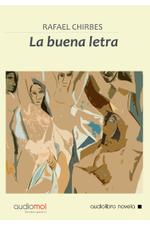 Parece que hasta el domingo no vamos a ver el sol, así que, ¿por qué no disfrutar del verano irlandés escuchando un buen libro en casa? En realidad, lo puedes oír en cualquier lado con tu MP3, en el autobús, en la bici, o corriendo por el parque cuando salga el sol. Si tu lengua nativa no es el español, también es una buena forma de practicarlo. Y lo mejor de todo es que lo tienes a un solo clic de distancia.
Parece que hasta el domingo no vamos a ver el sol, así que, ¿por qué no disfrutar del verano irlandés escuchando un buen libro en casa? En realidad, lo puedes oír en cualquier lado con tu MP3, en el autobús, en la bici, o corriendo por el parque cuando salga el sol. Si tu lengua nativa no es el español, también es una buena forma de practicarlo. Y lo mejor de todo es que lo tienes a un solo clic de distancia.
La buena letra cuenta la historia de Ana, que a su vez relata a su hijo fragmentos de una vida de pequeñas miserias con las que se han tejido las relaciones personales y familiares. No son grandes acontecimientos históricos los que nos narra su autor, Rafael Chirbes, sino hechos íntimos y cotidianos que suceden en las vidas de unos personajes heridos por la traición y la deslealtad
Rafael Chirbes nació en Tabernes de Valldigna, (Valencia), en 1949. A los 16 años se fue a vivir a Madrid, donde estudió Historia Moderna y Contemporánea. Vivió en Marruecos (donde fue profesor de español), París, Barcelona, La Coruña, Extremadura, y en el año 2000 regresó a Valencia.
Se dedicó a la crítica literaria durante algún tiempo y posteriormente a otras actividades periodísticas. Su primera novela, Mimoun (1988), quedó finalista del Premio Herralde y su obra La larga marcha (1996) fue galardonada en Alemania con el Premio SWR-Bestenliste. Con esta novela inició una trilogía sobre la sociedad española que abarca desde la posguerra hasta la transición, que se completa con La caída de Madrid (2000) y Los viejos amigos (2003). Con Crematorio (2007), un retrato de la especulación inmobiliaria, recibió el Premio Nacional de la Crítica y el V Premio Dulce Chacón. (Datos tomados de Wikipedia.org)
It seems we will not shee the sun until Sunday, so why not enjoy your Irish summer listening a good book at home? In fact, you can hear it anywhere with your MP3, on the bus, bike, or running through the park. If your native language is not Spanish, is also a good way to practice it. And best of all, you have only a click away.
La buena letra is the story of Ana, who tells her son fragments of a life of petty miseries with which they have woven the personal and family relationships. There are not big historical events in this fiction, but intimate and everyday events that happen in the lives of these characters wounded by betrayal and disloyalty.
Rafael Chirbes was born in Tabernes de Valldigna, (Valencia) in 1949. At age 16 he moved to Madrid, where he studied Modern and Contemporary History. He lived in Morocco (where he taught Spanish), Paris, Barcelona, A Coruña, Extremadura, and in 2000 he returned to Valencia. He devoted himself to literary criticism for some time and then to other journalistic activities.
His first novel, Mimoun (1988), was a finalist Herralde Prize and his novel La larga marcha (1996) was awarded in Germany. With this novel, he began a trilogy about Spanish society ranging from postwar to the transition, which is completed by La caída de Madrid (2000) and Viejos amigos (2003). With Crematorio (2007), a portrait of real estate speculation, received the Nacional de la Crítica Award and the 5th Dulce Chacón Award. (Data taken from Wikipedia.org)
Novedades en la biblioteca: junio 2012 / New to the library: June 2012
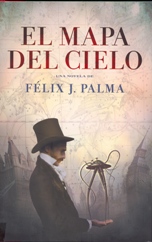 Las novedades de la biblioteca pueden ser consultadas en nuestro catálogo en línea, como es habitual.
Las novedades de la biblioteca pueden ser consultadas en nuestro catálogo en línea, como es habitual.
Para ello, seleccione ÚLTIMAS ADQUISICIONES y elija el período de tiempo que le interesa: ”el último mes” o “los últimos tres meses”.
Ésta es nuestra selección para el mes de junio de 2012.
The lastest additions to the library catalogue can be consulted on line as usual.
Click ÚLTIMAS ADQUISICIONES , then select “Dublin”, and choose the time period: “el último mes” or “los tres últimos meses”.
This is our selection for June 2012.
Jesús Ruiz Mantilla en nuestra biblioteca / Jesús Ruiz Mantilla in our library
Jesús Ruiz Mantilla (Santander, 1965) nos visitó el pasado mes de noviembre y nos concedió esta entrevista que ahora os ofrecemos en video.
Jesús Ruiz Mantilla es periodista y escritor. Desde 1992 trabaja en El País. Escribe sobre música, cine y libros, temas por los que dice sentir verdadera pasión.
Ha publicado hasta ahora un libro de ensayo, Placer contra Placer (2008), y cinco novelas: Los ojos no ven (1997), con el universo de Dalí de fondo; Preludio (2004), en la que aborda la capacidad del artista para la autodestrucción; Gordo (2005), donde reivindica la obesidad sin complejos.; Yo, Farinelli, el capón (2007), en la que cuenta la biografía del más famoso “castrato” de todos los tiempos y Ahogada en llamas, publicada en marzo de 2012, novela que reúne varios géneros en uno, pero donde el aspecto histórico tiene un peso innegable.
Ahogada en llamas estará a vuestra disposición en la biblioteca a finales de este mes.
Jesus Ruiz Mantilla (Santander, 1965) visited us last November and answered to our questions in this interview.
He is journalist and writer. Since 1992, he works in EL PAIS writing about music, movies and books.
He has published an essay: Placer contra placer (2008) and five novels: Los ojos no ven (1997), with the universe of Dalí in the background, Preludio (2004), which addresses the artist’s ability to self-destruction; Gordo (2005), where he claims an obesity without complex; Yo, Farinelli, el capón (2007), which tells the biography of the most famous “castrato” of all time and Ahogada en llamas, published in March 2012, a novel that brings together various genres in one, but where the historical aspect has an undeniable weight.
Ahogada en llamas will be available in our library later this month.
